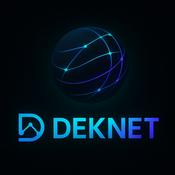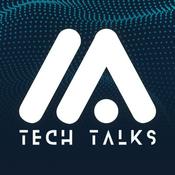88 episodios
- Kubernetes nodes on EKS can take over a minute to become ready, and pods often wait even longer — but most teams never look into why.
Jan Ludvik, Senior Staff Reliability Engineer at Outreach, shares how he cut node startup from 65 to 45 seconds and reduced P90 pod startup by 30 seconds across ~1,000 nodes — by tackling overlooked defaults and EBS bottlenecks.
In this episode:
Why Kubelet's serial image pull default quietly blocks pod startup, and how parallel pulls fix it
How EBS lazy loading can silently negate image caching in AMIs — and the critical path workaround
A Lambda-based automation that temporarily boosts EBS throughput during startup, then reverts to save cost
The kubelet metrics and logs that expose pod and node startup latenc,y most teams never monitor
Every second saved translates to faster scaling, lower AWS bills, and better end-user experience.
Sponsor
This episode is sponsored by LearnKube — get started on your Kubernetes journey through comprehensive online, in-person or remote training.
More info
Find all the links and info for this episode here: https://ku.bz/B7TzKXyxf
Interested in sponsoring an episode? Learn more. - You self-host services at home, but upgrades break things, rollbacks require SSH-ing in to kill containers manually, and there's no safety net if your hardware fails.
Thibault Martin, Director of Program Development at the Matrix Foundation, walked this exact path — from Docker Compose to Podman with Ansible to Kubernetes on a single server — and explains why each transition happened and what it solved.
In this interview:
Why Ansible's declarative promise fell short with the Podman collection, forcing sequential imperative steps instead of desired-state definitions
How community Helm charts replace the need to write and maintain every manifest yourself
Why GitOps isn't just a deployment workflow — it's a disaster recovery strategy when your infrastructure lives in your living room
How k3s removes the barrier to entry by bundling opinionated defaults so you can skip choosing CNI plugins and storage providers
Kubernetes doesn't have to be enterprise-scale — with the right distribution and community tooling, it can be a practical, low-overhead choice for anyone who cares about their data.
Sponsor
This episode is sponsored by LearnKube — get started on your Kubernetes journey through comprehensive online, in-person or remote training.
More info
Find all the links and info for this episode here: https://ku.bz/Xk5S7VqXz
Interested in sponsoring an episode? Learn more. Patroni Backups: when pgBackRest and Argo CD have your back (literally), with Ziv Yatzik
03/2/2026 | 25 minYour database backup strategy shouldn't be the thing that takes your production systems down.
Ziv Yatzik manages 600+ Postgres clusters in a closed network environment with no public cloud. After existing backup solutions proved unreliable — causing downtime when disks filled up — his team built a new architecture using pgBackRest, Argo CD, and Kubernetes CronJobs.
In this episode:
Why storing WAL files on shared NAS storage prevents backup failures from cascading into database outages
How GitOps with Argo CD lets them manage backups for hundreds of clusters by adding a single YAML file
The Ansible + Kubernetes hybrid approach that keeps VM-based Patroni clusters in sync with Kubernetes-orchestrated backups
A practical blueprint for making database backups boring, reliable, and safe.
Sponsor
This episode is sponsored by LearnKube — get started on your Kubernetes journey through comprehensive online, in-person or remote training.
More info
Find all the links and info for this episode here: https://ku.bz/Rg_sQYSmw
Interested in sponsoring an episode? Learn more.- Most developers assume Kubernetes requires an enterprise budget. Varnit Goyal proves otherwise — he built a full three-node Kubernetes cluster for $2.16/month using Rackspace Spot Instances.
The trick: pick non-default instance types, distribute nodes across low-demand regions, and let Kubernetes handle rescheduling when nodes get preempted. For service exposure, he replaced the $10/month load balancer with Tailscale Funnel — free.
In this episode:
How Spot Instance bidding works and which strategies keep costs and preemption low
Using Tailscale Kubernetes operator as a free alternative to traditional load balancers
Running real development dependencies (Kafka, Elasticsearch, Postgres) on a budget cluster
A practical walkthrough of what Kubernetes actually needs to function — and what you can strip away.
Sponsor
This episode is sponsored by LearnKube — get started on your Kubernetes journey through comprehensive online, in-person or remote training.
More info
Find all the links and info for this episode here: https://ku.bz/HpVyQMVv0
Interested in sponsoring an episode? Learn more. - Dilshan Wijesooriya, Senior Cloud Engineer, discusses a real incident where migrating EKS nodes to AL2023 caused the cluster autoscaler to lose AWS permissions silently.
You will learn:
Why AL2023 blocks pod access to instance metadata by default, breaking components that relied on node IAM roles (like cluster autoscaler, external-DNS, and AWS Load Balancer Controller)
How to implement IRSA correctly by configuring IAM roles, Kubernetes service accounts, and OIDC trust relationships, and why both AWS IAM and Kubernetes RBAC must be configured independently
The recommended migration strategy: move critical system components to IRSA before changing AMIs, test aggressively in non-production, and decouple identity changes from OS upgrades
How to audit which pods currently rely on node roles and clean up legacy IAM permissions to reduce attack surface after migration
Sponsor
This episode is sponsored by LearnKube — get started on your Kubernetes journey through comprehensive online, in-person or remote training.
More info
Find all the links and info for this episode here: https://ku.bz/T_YPfTfDb
Interested in sponsoring an episode? Learn more.
Más podcasts de Tecnología
Podcasts a la moda de Tecnología
Acerca de KubeFM
Discover all the great things happening in the world of Kubernetes, learn (controversial) opinions from the experts and explore the successes (and failures) of running Kubernetes at scale.
Sitio web del podcastEscucha KubeFM, Loop Infinito (by Xataka) y muchos más podcasts de todo el mundo con la aplicación de radio.es

Descarga la app gratuita: radio.es
- Añadir radios y podcasts a favoritos
- Transmisión por Wi-Fi y Bluetooth
- Carplay & Android Auto compatible
- Muchas otras funciones de la app
Descarga la app gratuita: radio.es
- Añadir radios y podcasts a favoritos
- Transmisión por Wi-Fi y Bluetooth
- Carplay & Android Auto compatible
- Muchas otras funciones de la app


KubeFM
Escanea el código,
Descarga la app,
Escucha.
Descarga la app,
Escucha.






































